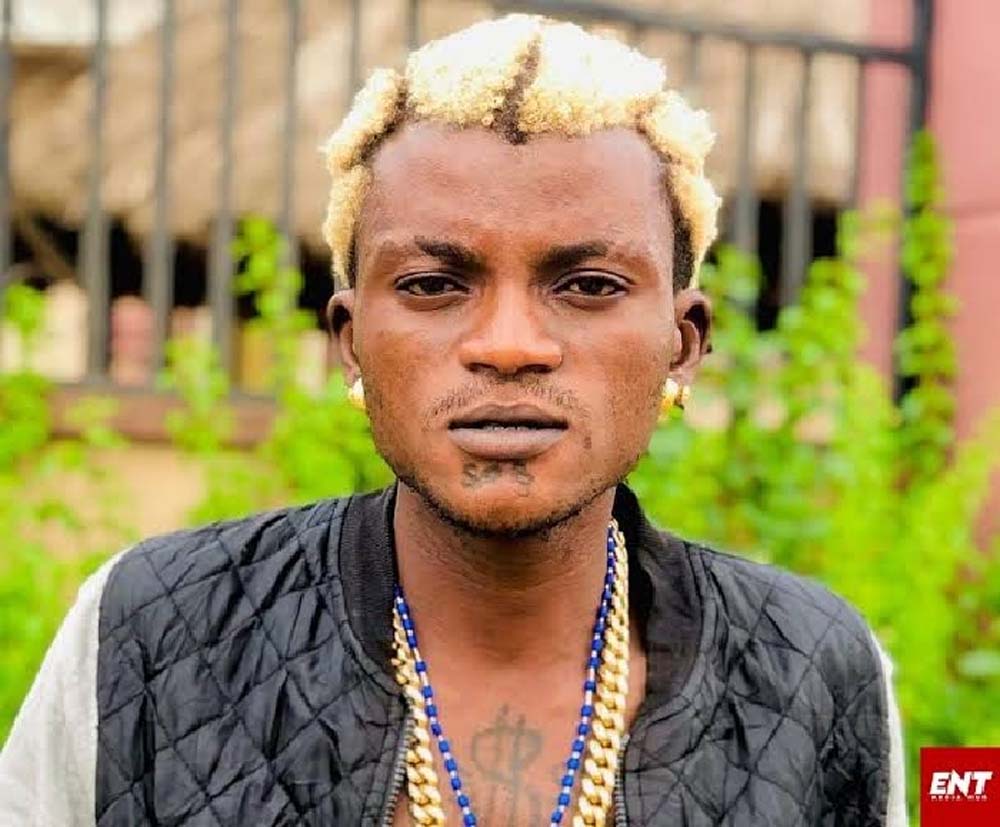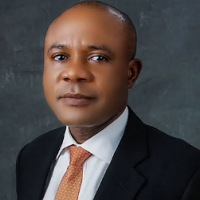Entertainment
KCee Reveals Reason Behind Decision To Wear Mask

KCee, a renowned figure in the Nigerian music scene, has established a solid reputation by continuously reinventing himself through a diverse exploration of Afrobeats and the distinctive music originating from South Eastern Nigeria.
During a recent interview, KCee, the artist who took Africa by storm in 2013 with his chart-topping single ‘Limpopo’ and is now making an incredible comeback to the mainstream a decade later, disclosed the motive behind his now famous face mask.
According to KCee, his intention is to embark on a rebranding journey that will introduce listeners to KCee 2.0.
For this transformation, he stated that he draws inspiration from the renowned Nigerian saxophonist and singer, Lagbaja, who is widely recognized for donning a mask.
He said “Me wearing my mask, I’m all masked up. It’s just a new Kcee. It’s a new season of dum dum and I just decided to cover my face. You guys have been seeing my face for almost 24/25 years. This time around I chose to cover it up and just give it some Lagbaja 2.0, Kcee 2.0,”
In his latest musical offering, KCee has unveiled a new single titled ‘Ojapiano.’ This track ingeniously merges the renowned “OJA” flute, representative of the eastern region of Nigeria, with the widely influential Amapiano sound originating from South Africa, which has dominated the music scene in recent times.
Since its release, the single ‘Ojapiano’ has achieved tremendous success across various streaming platforms and social media channels, swiftly capturing the attention of music enthusiasts worldwide.
The track has garnered viral popularity, spreading rapidly among listeners. As a result of its massive appeal, KCee’s ‘Ojapiano’ soared to the summit of TurnTable Top 100, Nigeria’s most prominent music chart.
Entertainment
Portable Remanded In Kwara Prison For Failing To Meet Bail Terms

Controversial street-hop singer, Okikiola Badmus, better known by his stage name Portable, has been remanded at the Oke Kura Correctional Centre in Ilorin, Kwara State, after failing to meet the bail terms set by an Upper Area Court.
The singer was arraigned on Monday following allegations of defamation filed against him by veteran Fuji star, Akorede Saheed, popularly known as Saheed Osupa.
Although the court approved bail for Portable in the sum of N1 million, the conditions attached proved difficult for the singer to meet immediately.
READ ALSO: JUST IN: Court Grants Singer Portable ₦1m Bail Over Criminal Charges
The court stipulated that he must produce two sureties in like sum — one of whom must be “either the Chairman or Secretary of the Performing Musicians Association of Nigeria,” while the second must be “a property owner within a Government Reserved Area in Ilorin, supported by a valid Certificate of Occupancy.”
More to follow……….
Entertainment
‘Nigeria Jaga Jaga’ Will Remain Unofficial National Anthem Until Change Happens – Eedris Abdulkareem
Renowned Nigerian rapper and activist Eedris Abdulkareem has boldly asserted that his 2001 protest anthem Nigeria Jaga Jaga will continue to serve as Nigeria’s unofficial second national anthem, insisting it will remain so until the country addresses the systemic issues it critiques.
Abdulkareem, famed for his fearless criticism of corruption and social injustices, made these remarks in a recent interview with Channels TV.
The song, which has seen a resurgence in popularity on platforms like TikTok, was groundbreaking for its uncompromising portrayal of Nigeria’s governmental failures, rampant corruption, and decaying infrastructure.
READ MORE: Rapper Eedris Abdulkareem Drops New Single ‘THANK YOU‘
Abdulkareem declared, “Nigeria Jaga Jaga will continue to be the second national anthem, whether anybody likes it or not. But I always pray to wake up one day and find the song is no longer relevant. That would make me very happy.”
Released nearly a quarter of a century ago, Nigeria Jaga Jaga caused a national stir with its sharp criticism of the nation’s political and economic decay.
Even though the song faced government bans and significant backlash at the time, it has stood the test of time, resonating with generations of Nigerians who continue to grapple with the same issues.
Abdulkareem expressed regret that the song’s message remains as relevant today as it was when it was first released: “Until we see real development—constant electricity, security, and good leadership—Nigeria Jaga Jaga will remain relevant. Sadly, 24 years later, the message of the song is still our reality.”
Aside from revisiting his iconic hit, Abdulkareem also addressed the controversy surrounding his latest track, Tell Your Papa. The song, which was recently banned by the Nigerian Broadcasting Commission (NBC) and marked “Not to be Broadcast” (NTB), has ignited a fresh debate on the state of censorship and freedom of expression in Nigerian music.
Many believe that Tell Your Papa is a direct rebuttal to a viral video in which Seyi Tinubu, the son of President Bola Ahmed Tinubu, passionately defended his father’s administration.
Abdulkareem explained his motivation behind the song, revealing, “I was inspired by Seyi Tinubu. In the video, he kept repeating, ‘My father is the greatest president.’ But I differ. He may be the best father to Seyi, but he’s the worst president to Nigerians.”
The rapper went on to criticize the current administration for its failure to address Nigeria’s economic challenges, insecurity, and widespread youth unemployment.
Abdulkareem contrasted the privileged life of Seyi Tinubu with the struggles faced by everyday Nigerians, saying, “I told him to travel by road without security and feel the pain of the people.
Nigerian youths are asking for basic things—electricity, security, job opportunities—not palliatives.”
Despite the ban, Abdulkareem maintained that his song was not an insult but a truthful commentary on the country’s leadership.
“If you listen carefully, there’s nowhere in the song that I insult him. I just stated the truth. He spoke publicly, so I responded publicly. If he had remained silent, I wouldn’t have recorded the song,” Abdulkareem clarified.
Drawing comparisons to the legendary Afrobeat musician Fela Kuti, Abdulkareem emphasized that his criticism comes from a deep love for Nigeria.
“I’m a passionate Nigerian. I love this country deeply. But truth is bitter, and those in power don’t like hearing it,” he said. “I want a better Nigeria, and I’ll keep speaking out until we see real change.”
Entertainment
JUST IN: Court Grants Singer Portable ₦1m Bail Over Criminal Charges
An Upper Area Court sitting in Ilorin, Kwara State, has granted bail to controversial Nigerian singer, Okikiola Badmus, popularly known as Portable, in the sum of ₦1 million.
Portable was arraigned before the court on Sunday on charges bordering on criminal defamation, intimidation, inciting public disturbance, and cyberstalking.
Ruling on his bail application, the court ordered that the singer must produce two sureties in like sum.
READ ALSO: I Want To Fight Anthony Joshua – Portable
One of the sureties is required to be either the Chairman or Secretary of the Performing Musicians Association of Nigeria (PMAN), while the other must own a landed property within a Government Reserved Area (GRA) and present a valid Certificate of Occupancy as proof.
The court has adjourned the case, with further proceedings expected to continue in the coming days.
Details later…














